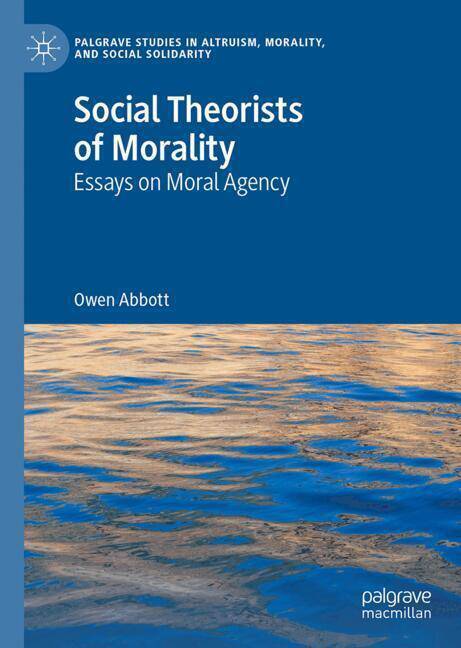
- Retrait gratuit dans votre magasin Club
- 7.000.000 titres dans notre catalogue
- Payer en toute sécurité
- Toujours un magasin près de chez vous
- Retrait gratuit dans votre magasin Club
- 7.000.0000 titres dans notre catalogue
- Payer en toute sécurité
- Toujours un magasin près de chez vous
Description
This book provides an interdisciplinary series of essays on key social theorists of morality. It explores contributions to social moral theorising made by W. E. B. Du Bois, G. H. Mead, Jane Addams, Alasdair MacIntyre, Carol Gilligan, Seyla Benhabib, Kwame Anthony Appiah, and Jonathan Haidt. It thus seeks to integrate alternative voices at the "foundations" of sociological theorising about morality, while entering into dialogues with post-Enlightenment moral philosophy and contemporary moral psychology. In so doing, it engages with perspectives of pragmatism, virtue ethics, care ethics, feminist critiques, and moral foundations theory. The essays discuss key topics in social theories of morality, including moral action, socialisation, habit and reflexiveness, relationships, emotion, self, identity, racism and colonialism, universalism, and innateness. It centres crucial (but often overlooked) questions of moral power, and assesses the relationship between moral theorising and normative argument. The essays are conjoined by a running theme of moral agency-how it is constituted and how it is enacted-which orientates the book's arguments and critiques.
Spécifications
Parties prenantes
- Auteur(s) :
- Editeur:
Contenu
- Nombre de pages :
- 352
- Langue:
- Anglais
- Collection :
Caractéristiques
- EAN:
- 9783031751806
- Date de parution :
- 30-01-25
- Format:
- Livre relié
- Format numérique:
- Genaaid
- Dimensions :
- 148 mm x 210 mm
- Poids :
- 589 g

Les avis
Nous publions uniquement les avis qui respectent les conditions requises. Consultez nos conditions pour les avis.






